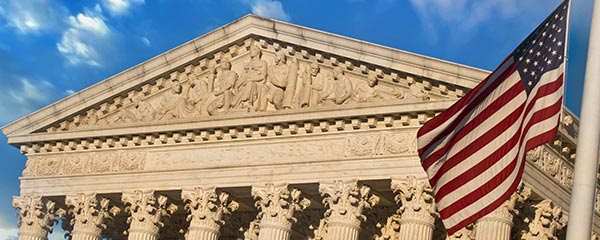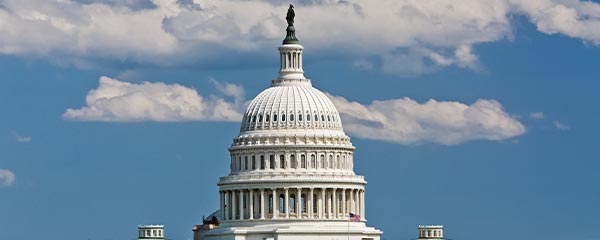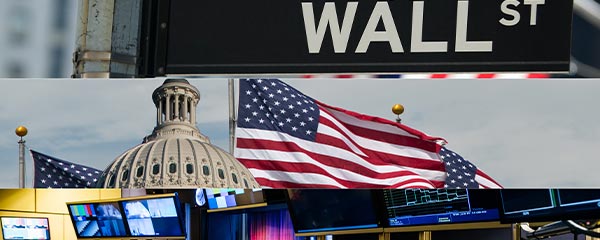The latest U.S. Supreme Court sessions have been marked by a number of significant and high-visibility rulings -- among them, last year’s Dobbs decision, which struck down Roe v. Wade; the Students for Fair Admissions Inc. v. President and Fellows of Harvard College decision, which struck down the use of race as an explicit factor in college admissions decisions; and the recent 303 Creative LLC et al. v. Elenis et al. decision, which concluded that a website designer can refuse to create websites for same-sex couples.
The Dobbs decision went against a great deal of data showing that the American public wanted Roe to stay in place. The Harvard decision, on the other hand, is in sync with the public’s well-documented views that a college applicant’s race should not be a factor in college admissions decisions. Public opinion on the issues involved in the Creative decision is more mixed, in part reflecting the complexity of the case and the nuances of the court’s decision.
Affirmative Action Is a Complex Issue to Unravel
The court’s decision on the use of race in college admissions, as I wrote earlier this year, is the latest instance of an effort to wrestle with a significant and extremely complex part of the flow of American history.
Ascriptive characteristics (those we are born with rather than those we achieve) have been used to determine people’s fate since the founding of our nation. Society’s structures, systems and norms were historically built around the understanding that ascriptive (identity) groups should be treated differently -- based in particular on racial, ethnic, religious and gender characteristics. This led to all manner of policies, procedures and laws that excluded members of specific ascriptive groups from occupations, businesses, schools, neighborhoods, professions, the right to vote and so on.
The history of our country is, to a significant degree, the history of efforts to address this infamous part of our nation’s past, particularly in terms of the issue of race and ethnicity.
One step in these efforts has been the focus on eliminating the practice of overtly taking the ascriptive characteristic of race into account in commerce and education, taking on the force of law with the passage of legislation prohibiting discrimination and with such things as the creation of the Equal Employment Opportunity Commission as an enforcement entity. The public wholeheartedly agrees with these processes.
The second step -- of relevance to the Supreme Court’s recent decision -- has been the idea that rather than attempting to ignore racial and ethnic identity, society should reverse course and resume the practice of taking ascribed characteristics into account, but this time justified by an effort to compensate for history’s damages. It is this type of argument that was before the Supreme Court.
We assume the public is aware of the use of ascriptive characteristics in negative, discriminatory ways historically. We know that the American public favors the broad idea that there should be efforts to ensure equality, equity and equal opportunity across ascriptive groups. Yet even with that assumed knowledge, Americans remain more opposed than in favor of explicit processes by which a college applicant’s ascriptive characteristic of race is brought to the forefront and used as a factor in decisions on that individual’s educational fate. That was the case when I reviewed the data in 2020, and it remains the case in all recent polls with which I am familiar. The degree of opposition predictably varies by partisanship and ideology and varies to some degree depending on question wording and other factors, but it is a robust and reliable finding.
Public Opinion on Abortion and Roe v. Wade
As arguments for and against legal action on abortion have played out -- most recently, in the decision of the highest court in the land to abolish Roe v. Wade -- the data suggest that the public has moved less in favor of banning abortion. My colleague Lydia Saad notes in her recent review of Gallup’s latest data on abortion, “After rising to new heights last year, Americans’ support for legal abortion remains elevated in several long-term Gallup trends.” More specifically, the data show that Americans oppose the Dobbs ruling, with 61% of Americans in Gallup’s May poll saying the Supreme Court’s overturning of Roe v. Wade was a “bad thing.”
Views More Mixed on Providing Services to LGBTQ+ Customers
The issues involved in the 303 Creative decision are complex, given that the individual involved claimed she was not simply providing a service or product like a wedding cake, but was attempting to avoid being compelled to create free speech against her will as she wrote content for web material.
Available polling data on this general topic show mixed results. A recent Marquette University survey found that slightly more Americans had heard about and opposed the decision that “a business owner’s religious beliefs or free speech rights can justify refusing some services to gay people” than had heard about and favored the decision (although almost half either hadn’t heard about it or didn’t have an opinion). A Pew Research poll conducted in late March and early April used somewhat more specific wording and got a different result: “Some business owners object to providing services in situations where this could suggest support for beliefs about lesbian, gay, bisexual or transgender (LGBT) issues that they have personal or religious objections to. For example, a designer of wedding websites who has objections to same-sex marriage.” The results showed that 60% agreed that “in these situations, business owners should be able to refuse to provide these services.”
These disparate results reflect an underlying complexity that can make survey respondents sensitive to exactly how question wording explains the decision and its legal rationale. This ambiguity, in turn, means that public opinion going forward (particularly public opinion about the court) will depend in part on how the decision comes across as Americans hear it explained by their favored information sources. By way of example, we are already seeing such dueling opinion headlines as “With its 303 Creative decision, the Supreme Court opens the door to discrimination” and “Web designer's victory at Supreme Court is free speech win for all.”
Impact of the Decisions Long Term
There is no constitutional requirement that the judicial branch of the government should reflect public opinion. This stands in contrast to the case for Congress and the president, who serve at the pleasure of the people as controlled through periodic elections.
But the Supreme Court, with no enforcement power of its own, needs to maintain its legitimacy both in the eyes of the public and from the perspective of the other two branches of government. Justices are thus not oblivious to public opinion, and Chief Justice John Roberts has periodically expressed concern about the public reputation of the court. And for good reason. As Gallup’s Jeff Jones noted last summer, “Americans’ confidence in the [Supreme] Court has dropped sharply over the past year and reached a new low in Gallup's nearly 50-year trend.”
Exactly what the net impact of recent Supreme Court decisions will be on the court’s deteriorating image in the eyes of the public is difficult to determine at this juncture. We can assume the public’s confidence in the Supreme Court (on average) may have been weakened by the Dobbs abortion decision last year -- but may have been bolstered by the more recent affirmative action decision. And it is clearly too early to figure out the potential impact of the complex Creative decision on the court’s image going forward.




